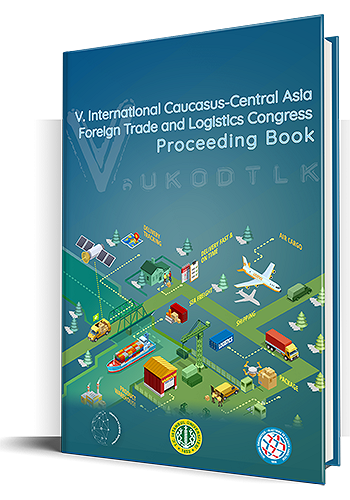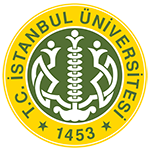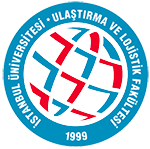
Ulaştırma ve Lojistik Kongreleri
- English
- Özet
- 2019
Evaluation of Turkey’s Foreign Trade Deficit with Russia in The Light of Current Developments
Özgül Uyan
Dr. Öğr. Üyesi, İstanbul Aydın Üniversitesi, İstanbul, Türkiye
Trade in goods and services between Turkey and Russia, has been fluctuating depending on the economic and political developments in the regional and global levels. Thus, breakpoints have occurred in trade between the two countries, as a result of the outbreak of the global crisis in 2008, the imposition of sanctions on Russia by Western countries due to the annexation of Russia in Crimea in 2014, and the implementation of economic sanctions on Turkey by Russia based on the jet crisis in 2015. Turkey has been registering a consistently large trade deficit vis-a-vis Russia since the 2000s when Turkey began to provide energy needs significantly from Russia. In 2018, in terms of trade in goods, Russia became the 12th country to which Turkey exports the most by a trade volume of $ 3.40 billion; the 1st country from which Turkey imports the most by a trade volume of $ 21.99 billion. In 2018 the share of Russia at the total exports of Turkey was around 2.02%; at the total imports of Turkey was around 9.86%. Over the last eleven years, Turkey's foreign trade deficit with Russia has become to the highest level in 2008; to the lowest level in 2016. The goods having an important share in Turkey's exports to Russia are fruit and vegetable, footwear, automobile, textile-apparel products and prefabricated buildings; in Turkey's imports from Russia are refined oil, natural gas, iron-steel, wheat, crude aluminum, sunflower oil and fertilizer. In the economic relations of Turkey-Russia, tourism and construction has an important role as well as the mobility of goods. The number of Russian tourists visiting Turkey has increased to 6 million in 2018. In Russia, which has a share of 20% in the Turkish foreign contracting sector, 1910 projects with a total value of 65 billion dollars have been undertaken so far. Moreover, the reciprocal investments of the two countries are around 10 billion dollars. In this study, the historical course and the main determinants of the deficit which occurs against Turkey in trade volume depending on the mobility of goods between Turkey and Russia, and how this trade imbalance can disappear, are investigated. Accordingly, the foreign trade volume and components of the two countries between 2008 and 2018 were analyzed. Then, the product items that were effective in the formation of the foreign trade deficit were identified and the practices aimed at closing the deficit were evaluated within the framework of the current economic and political conjuncture. The study reveals that, to be able to balance the asymmetric trade with Russia, it is necessary Turkey to export goods in exchange for natural gas imports, and to export of high value-added goods. On the other hand, since it is possible the sanctions imposed on Russia may cause the cooperation between Turkey and Russia in the field of energy more cost, it is important Turkey to develope alternative energy projects with energy exporters and to encourage the generation of renewable energy.
Keywords: Foreign Trade Deficit, Turkey-Russia Foreign Trade, International Trade, Export, Import
Türkiye’nin Rusya İle Dış Ticaret Açığının Güncel Gelişmeler Işığında Değerlendirilmesi
Türkiye ile Rusya arasındaki mal ve hizmet ticareti, bölgesel ve küresel ekonomik ve siyasi gelişmelere bağlı olarak dalgalı bir seyir izlemektedir. Nitekim, 2008 yılında küresel krizin baş göstermesi, 2014 yılında Rusya’nın Kırım’ı ilhakı üzerine Batılı ülkelerce Rusya’ya yaptırımlar getirilmesi ve 2015 yılında uçak krizine istinaden Rusya’nın Türkiye’ye ekonomik yaptırımlar uygulaması neticesinde iki ülke arasındaki ticarette kırılma noktaları oluşmuştur. Türkiye, enerji ihtiyacını önemli ölçüde Rusya’dan sağlamaya başladığı 2000'lerden itibaren Rusya karşısında sürekli olarak büyük bir dış ticaret açığı kaydetmektedir. 2018 yılında mal ticareti açısından Rusya, 3.40 milyar dolar hacimle Türkiye'nin en fazla ihracat yaptığı 12’inci ülke; 21.99 milyar dolar ile en fazla ithalat yaptığı 1’inci ülke olmuştur. 2018 yılında Rusya, Türkiye toplam ihracatından %2.02; toplam ithalatından ise % 9.86 civarında pay almıştır. Son on bir yıl incelendiğinde, Türkiye’nin Rusya ile dış ticaretindeki açık en yüksek seviyesine 2008, en düşük seviyesine 2016 yılında gelmiştir. Türkiye’nin, Rusya’ya ihracatında sebze-meyve, ayakkabı, otomobil, tekstil-konfeksiyon ürünleri ve prefabrik yapılar; ithalatında ise rafine petrol, doğal gaz, demir-çelik, buğday, işlenmemiş alüminyum, ayçiçeği yağı ve gübre önemli bir paya sahiptir. Türkiye-Rusya ekonomik ilişkilerinde eşya hareketinin yanı sıra turizm ve inşaat da önemli yer tutmaktadır. 2018 yılında Türkiye’ye gelen Rus turist sayısı 6 milyona yükselmiştir. Türk yurtdışı müteahhitlik sektöründeki payı %20 olan Rusya’da bugüne kadar toplam değeri 65 milyar dolara varan 1910 proje üstlenilmiştir. Ayrıca, iki ülkenin karşılıklı yatırımları yaklaşık 10’ar milyar dolar civarındadır. Bu çalışmada, Türkiye ile Rusya Federasyonu arasındaki eşya hareketlerine bağlı ticaret hacminde Türkiye aleyhine oluşan açığın tarihsel süreçteki seyri ve temel belirleyicileri ile ticaretteki bu dengesizliğin nasıl ortadan kalkabileceği araştırılmaktadır. Bu doğrultuda iki ülkenin 2008-2018 yılları arasındaki dış ticaret hacmi ve bileşenleri incelenmiştir. Ardından dış ticaret açığının oluşmasında etkili olan ürün kalemleri belirlenerek, açığın giderilmesine yönelik uygulamalar mevcut ekonomik ve siyasi konjonktür çerçevesinde değerlendirilmiştir. Çalışma, Türkiye’nin Rusya ile arasındaki asimetrik ticareti dengeleyebilmesi için doğal gaz ithalatı karşılığında mal ihracatı yapmasının ve yüksek katma değerli eşya ihraç etmesinin lüzumunu ortaya koymaktadır. Diğer yandan, Rusya’ya uygulanan yaptırımlar Türkiye ile Rusya’nın enerji alanındaki işbirliğine daha fazla maliyet yükleyebileceğinden, Türkiye’nin enerji ihracatçılarıyla alternatif projeler geliştirmesi ve yenilenebilir enerji üretimini teşvik etmesi önem arz etmektedir.
Anahtar Kelimeler: Uluslararası Ticaret, Dış Ticaret Açığı, İhracat, Türkiye-Rusya Dış Ticareti, İthalat


Bu çalışma, kullanan kişilere orjinal çalışmadan alıntı yaptıkları sürece, çalışmayı dağıtma, değiştirme ve üzerine çalışma hakkı tanıyan Attribution 4.0 International (CC BY 4.0) lisansı ile lisanslanmıştır.
İletişim
İstanbul Üniversitesi Ulaştırma ve Lojistik Fakültesi
İ.Ü. Avcılar Kampüsü 34320 Avcılar/İstanbul
ulk@istanbul.edu.tr
+ 90 (212) 440 00 00 - 19200


